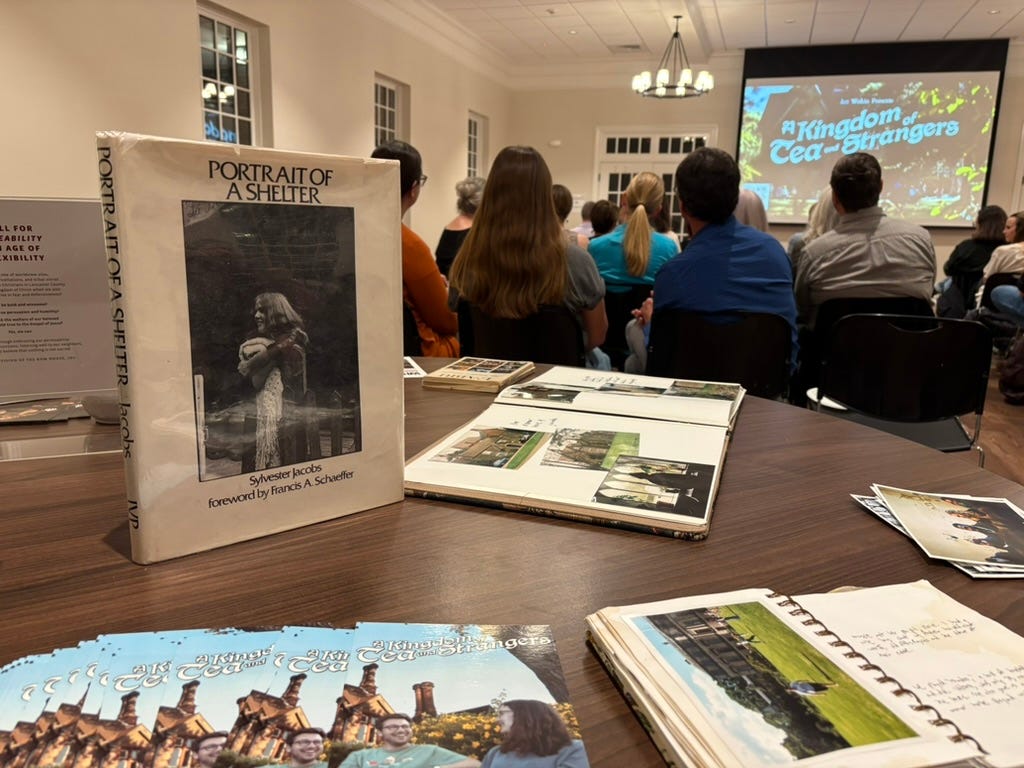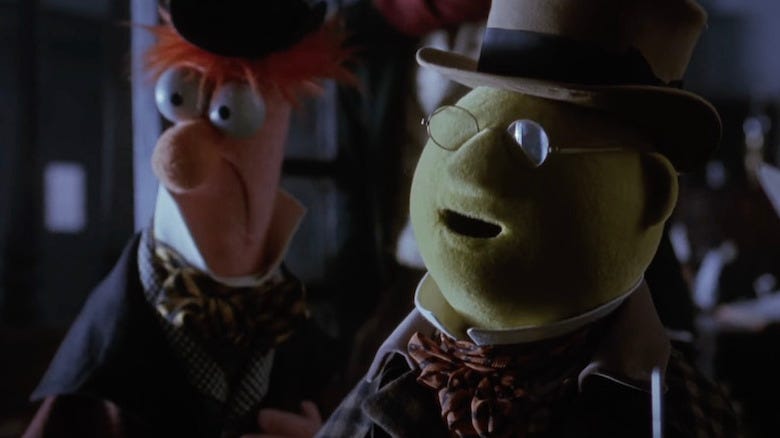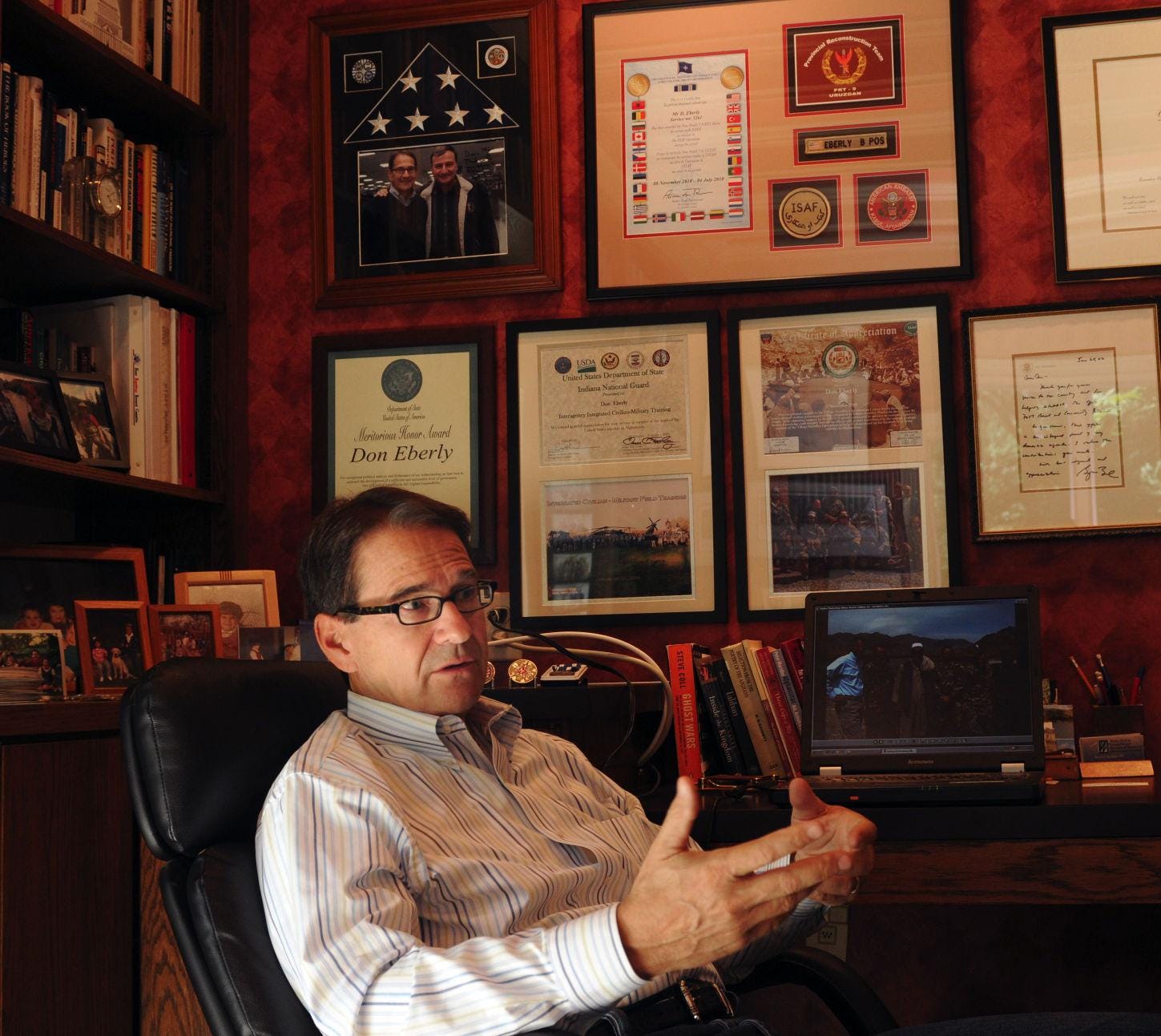Should We Burn Through Books or Just Burn 'em?
We've forgotten how to read because we've forgotten what books are for.
What Just Happened?
I glance back at a recent event and relay some thoughts.
Learning in Community
There’s a spot in Jane Austen country in southern England that’s become holy ground to Becky and me: L’Abri Fellowship in the small village of Greatham. They’ve been hosting wayfaring strangers for decades 50 miles south of London. Our three family visits there are etched in our psyches so much that it seemed natural to me to decorate our guest room with touches of Hampshire County.
For a few hours on Oct. 22nd L’Abri came to Lancaster, PA in another form. 65 people sat in close proximity at Wheatland Church to take in the area premiere of a new documentary shot at L’Abri: A Kingdom of Tea & Strangers.
The film is nearly two hours long and full of “slow” scenes of heretofore strangers fixing meals, chopping wood, or reading aloud in cozy quarters in the ground’s manor house. It’s similar to the way Director Houston Coley wants his people to experience his film: Together around food, ideas, and nature. It’s the reason his film will not go into distribution till he’s satisfied enough people have seen it “live” and in person.
Our board chairman Samuel Spatola, also acquainted with L’Abri, played a big part in setting up the viewing. We were pleasantly surprised that so many people came out on a Tuesday night, some as far away as Virginia.
Books, as I’ll relate below, play a crucial part in an outreach like L’Abri. Not that it’s a heady place of academic rigor. It’s more of a meditative slow churn of ideas in the context of real life.
One of the students in the film marvels at how social connections form rapidly because of the slowness of the pace at L’Abri. How true that is. Consider what a week of vacation with friends and family will do for you.
The simple yet profound experience of sharing life with others is often a conduit to metaphysical change. Of course, this dynamic, sociologists and cult experts tell us, can also be leveraged by bad actors. The purpose of L’Abri and of the The Row House is to create a context for the light of Christ to break through, not through coercion but through profound personal connection to “the God who is there.”
As branch Director Jim Paul puts it:
L’Abri can’t be a cult because we tell people to leave!
Hence, the content and intent of such places matter supremely. Virtues like faith, hope, and love must be at the center of all Christian community.
How are those dispositions cultivated? That was the central question of our recent Friday Forum which is a fine springboard to my next section which is….
Tomsées
In which I share a short take on Christ and culture.*
So, What Are Books For?
Stefanie Peters was our November Forum speaker, an editor with The Library of America.
Would anyone come out on a Friday night to hear a talk called Preserving Great American Literature for the Ages? Apparently, yes.
But would it be compelling? Again, yes, if the call-and-response atmosphere of the room was any indication. She told me afterward she felt like she was preaching!
This is what happens when book lovers gather. Call us bookworms, beautiful nerds, Guttenberg geeks (I just made that up. You can use it). Here, listen for yourself:
Even the less literary in the blue chairs were riveted by slides showing unpublished note pages by famous authors used for arriving at the best possible manuscripts.
Peters has had the privilege of working with one living author that many people of faith count on for depth and poetics: Wendell Berry. She showed an example of his hand-written notations in which Ms. Peters is trying to nail down timelines and place names in the fictional terrain of Port William.
Here’s her synopsis of the evening:
In my lecture at The Row House, I talked about the history of Library of America—why it was necessary to found a publisher to make sure that the best American writing is preserved—about the work I do there establishing authoritative texts so readers have the best version of a book, and about the problem I think is confronting readers now: of maintaining our ability to read these great books. I suggested that one reason why this is important is that reading widely helps us discern reality: what is true.
I wished I had time to talk about John Milton, the seventeenth century English poet who wrote Paradise Lost. At the entrance to the Rose Reading Room of the New York Public Library’s main branch is a quote from his pamphlet Areopagitica: “A good book is the precious life-blood of a master spirit, embalmed and treasured up on purpose to a life beyond life.” I read that every week when I go there to write.
Areopagitica is a polemic for free speech and against censorship. At one point Milton tells a story from Egyptian mythology, of how a “race of deceivers” arose who took Truth and “hewed her lovely form into a thousand pieces, and scattered them to the four winds.” Milton argues that censorship and book banning hinder this search for Truth.
This reminds me too of the rabbinical idea that Truth is a thousand-sided diamond, and none of us can see more than a few facets by ourselves. This is why we need community—to help us see more of what is True, what is Real—and it’s why we need the “precious life-blood of a master spirit,” or preferably a lot of them: good books.
One of the questions I was asked in the Q&A was about how to find a book to start with. I suggested that community is the answer: asking friends for recommendations, but also reading the books your favorite authors mention, or that someone you trust recommends: This could be a book critic or a scholar or just someone who reads a lot. Local bookstores are also great places to find recommendations. Look at the books they prominently display, or ask the booksellers. And, yes, the LOA catalog is a great place to start too!
*Tomsées is a nod to Pensées, an eclectic collection of writings by Blaise Pascal which were a work of apologetics for the Christian faith, published posthumously in 1670.
Let’s Talk About the Future
The 4-1-1 on What’s Coming Down the Pike at The Row House, Inc.
1. Members Only Dickens-of-a-Party!
A couple times a year we like to thank our Members and Sponsors for making our Forums available to the public in the fine city of Lancaster. If you’re in town on Dec. 13th and have a hankering for Victorian foods and some Dickensian fun, join us at Nooks book shop at 112 N. Prince. But RSVP first because space limits us to 50 lucky souls.
2. Our Year End Financial Appeal
There are two simple ways for you to take part in our mission of “engaging current culture with ancient faith:”
Become a Member for as little as $15/month and get a free pass to any of our Forums for you and a guest.
Sponsor us! We’re looking for more households and corporate entities to bolster our revenue by year’s end. If this sounds like a perfect match let us know.
We need another $6,000 in new donations in any form by Dec. 31st to make budget and pay all our bills. Invest as you’re able, and we’ll be thankful.
3. Don Eberly, Author and Statesman, Speaking
Folks, this could be one of the biggest and most important events in our organization’s history. I daresay, too, that our nation’s recent cultural history surely needs what this man has to say.
We’re honored and excited that Mr. Eberly will be speaking on The Kindness Option: Why Civility Isn’t Enough on Friday Jan. 10th at 7:00 in the Great Hall of The Trust Performing Arts Center.
Eberly is a former aide to Presidents Ronald Reagan and George W. Bush, an author of numerous books on civil society, and a 40- year veteran of national and international policy and diplomacy. He and his wife Sheryl reside in Lancaster County.
He has recently written
Electoral outcomes can easily blind us...to the deepest and most consequential challenge of our time: the loss of interest in the moral and spiritual health of our own private lives. If your definition of American greatness is military progress, an expansion of wealth, and unrestrained pride in America, you have bought a very distorted vision of national health. A basic axiom is that it is impossible to have a strong nation with a weak and broken society. It’s an illusion.
I’ve been meeting with Don, and I can assure you that he will bring a wealth of national and international experience of developing social policies for the common good. More than that, he’s a deeply grace-centered man, always growing in virtue and learning from others.
His talk and conversation will create a space where political and religious lines will be stretched, and we’ll all be inspired to humbly honor our fellow humans even as we seek what’s best for America.
I hope to see you soon, and stay in touch.
Cheers,
Tom Becker, Founder & Curator of The Row House Forum
permeability | This column is reader-supported. To receive new posts and support The Row House, Inc. consider becoming a free or paid subscriber.









